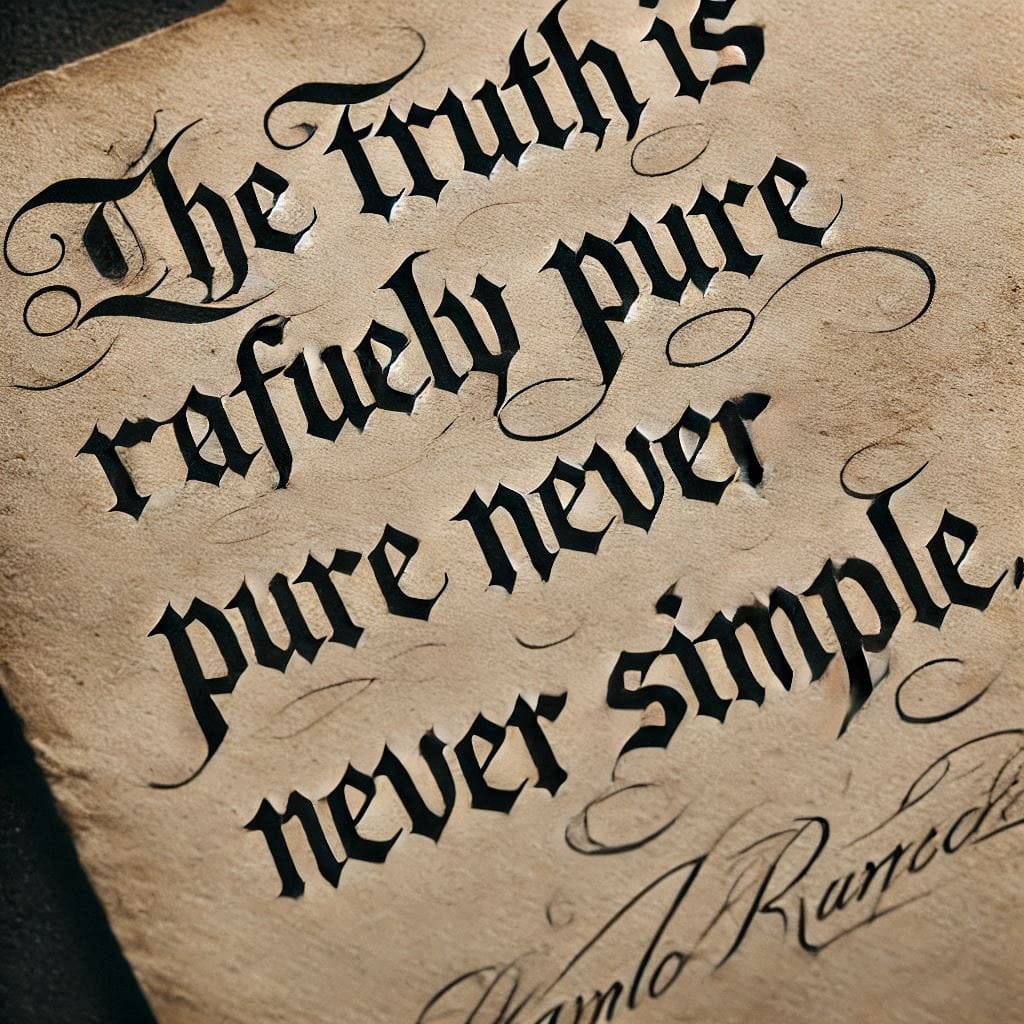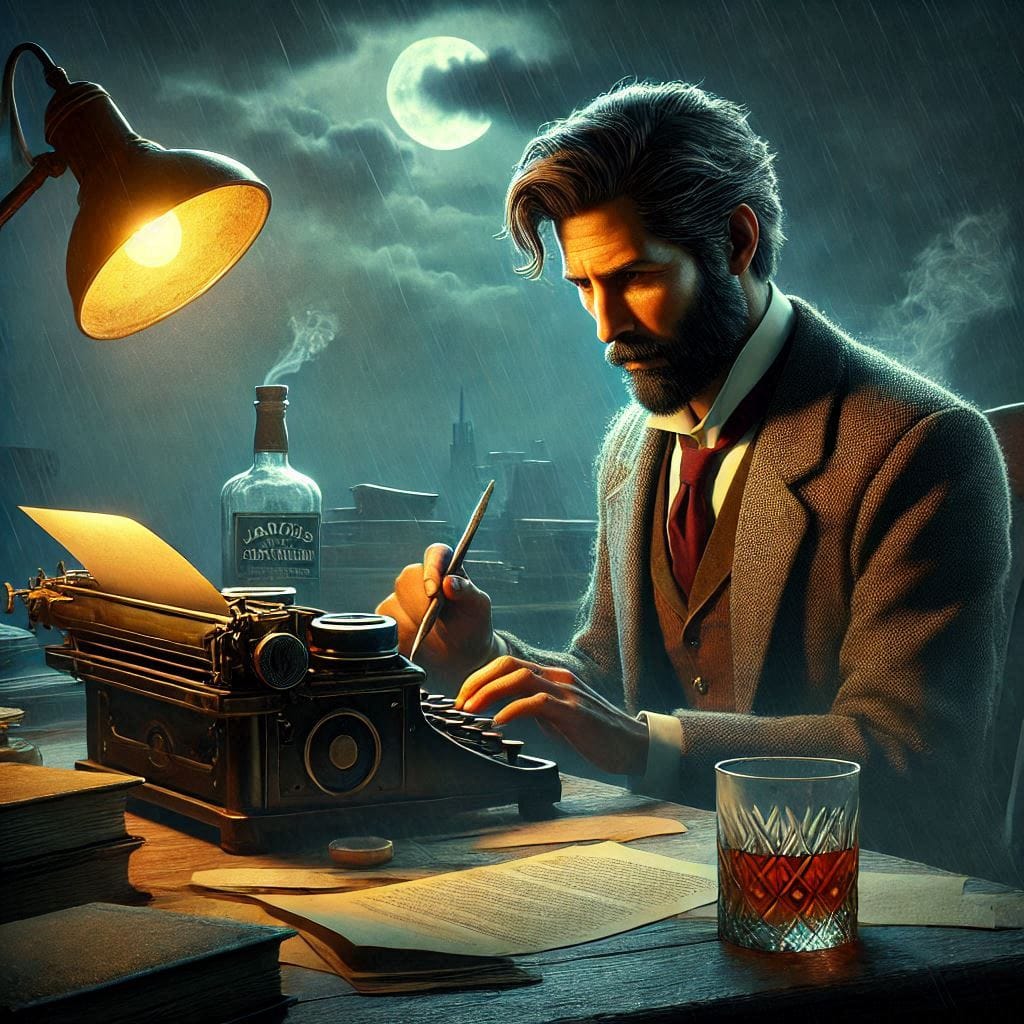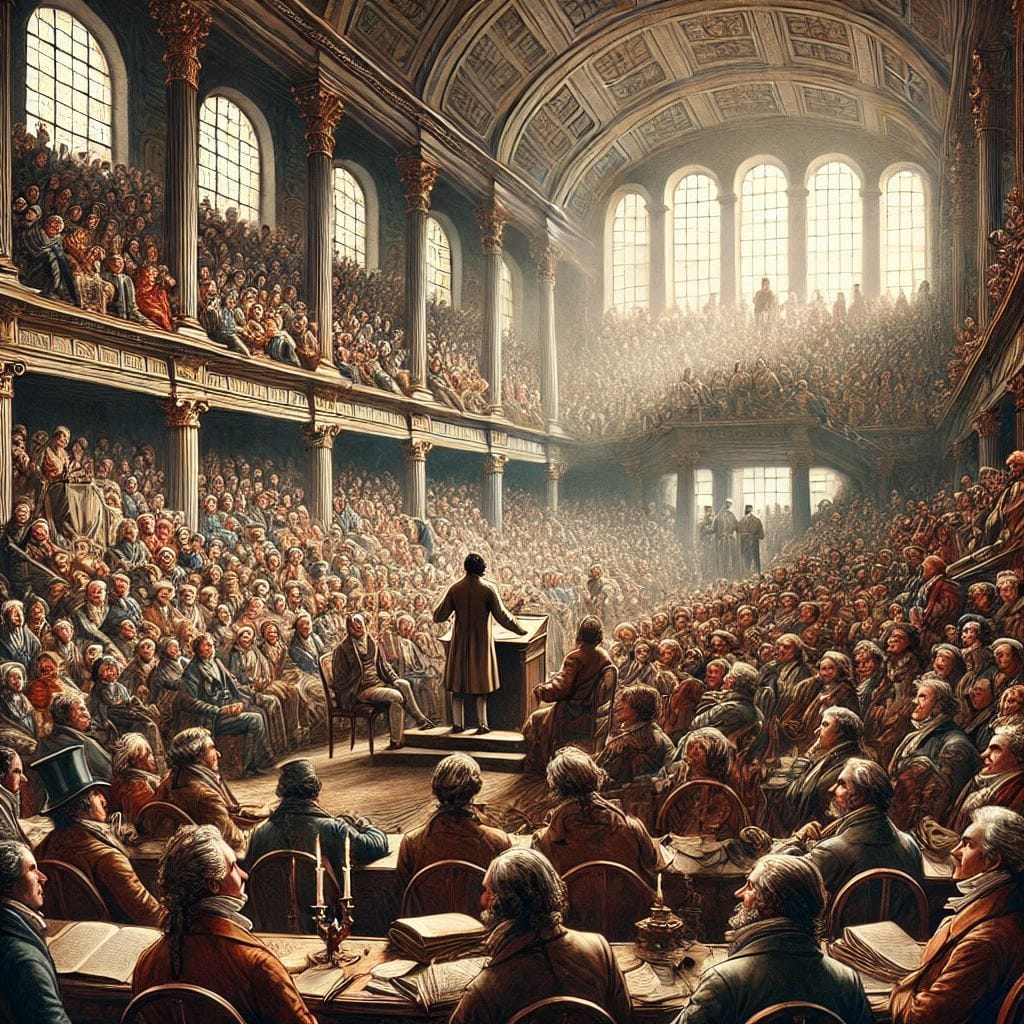
Truth Quote: “The truth is rarely pure and never simple.” by Oscar Wilde, speaks to the inherent complexity and subjectivity of truth. It challenges the idea of absolute or singular truth, suggesting instead that truth is often layered, multifaceted, and influenced by context.
Deeper Meaning of Truth Quote by Oscar Wilde:
“The truth is rarely pure and never simple.“
- Rarely Pure: Truth is rarely free from external influences. It can be colored by emotions, biases, or agendas, making it difficult to isolate an objective or “pure” version of events or facts.
- Never Simple: Truth is often entangled with multiple perspectives, motivations, and consequences. Simplifying it may lead to distortion, while embracing its complexity requires acknowledging contradictions and ambiguities.
This quote encourages us to approach truth with humility and openness, recognizing that it often exists in shades of gray rather than black and white. It resonates with the narrative in Shadows of Certainty, where Marcus grapples with the moral and historical intricacies of truth and its implications.
Here’s a story inspired by Truth Quote “The truth is rarely pure and never simple.”
Truth Story: “Shadows of Certainty“
In the bustling city of Verdance, renowned for its majestic skyline and labyrinthine streets, lived a man named Marcus D’Alto. Marcus was a celebrated historian, a figure of integrity who had built his career on uncovering truths long buried by time. His lectures were legendary, and his books were widely regarded as definitive accounts of pivotal moments in history. Yet, for all his acclaim, Marcus harbored a secret—one that he had spent decades trying to forget.

One evening, while poring over documents in the grand Verdance Library, Marcus stumbled upon a letter—faded, fragile, and out of place. Its contents shook him to his core. It was a confession written by his late mentor, Professor Edward Lorn. Edward had been a towering figure in Marcus’s life, a man whose guidance had shaped his understanding of history and truth. The letter revealed that one of Edward’s most celebrated discoveries, the so-called “Treaty of Corvain,” was a forgery—crafted not to deceive but to inspire unity during a time of great unrest.

As Marcus sat in the dim light of the library, the words of the letter echoed in his mind: “The truth is rarely pure and never simple. What matters is the good it can achieve.”
Conflicted, Marcus embarked on a journey to uncover the full extent of the deception. His investigation led him to Edward’s old colleagues, dusty archives, and even the descendants of those involved in the events surrounding the treaty. The deeper he dug, the more complicated the narrative became. The forgery had indeed brought about peace, saving countless lives. But it had also led to policies and alliances built on a foundation of lies.

Meanwhile, the academic world buzzed with rumors of Marcus’s new project. His publisher eagerly awaited a manuscript, and his detractors sharpened their knives, ready to dismantle his reputation. Torn between his reverence for Edward and his commitment to the truth, Marcus found himself trapped in a web of moral ambiguity.

One stormy night, Marcus stood before his typewriter, the final chapter still unwritten. He poured himself a glass of brandy and stared at the blinking cursor on the blank page. Should he expose Edward’s lie and risk tarnishing his legacy, or should he bury the secret, preserving the peace the treaty had secured?
Ultimately, Marcus chose a middle path. His book, “Shadows of Certainty,” presented the facts as he had discovered them but framed them within the broader context of human fallibility and the complexity of truth. It was neither a condemnation nor a vindication but an exploration of the delicate balance between ideals and realities.

The book was met with acclaim and controversy in equal measure. Some hailed it as Marcus’s finest work, a masterpiece that dared to confront uncomfortable questions. Others accused him of cowardice, of failing to take a definitive stance. Marcus, however, felt at peace. He had come to understand that truth, like history itself, is rarely pure and never simple. And in that gray space, where contradictions coexist, lies the essence of humanity.
Here is the end of truth story of quote “The truth is rarely pure and never simple.“
To explore more on stories and dive into related ideas, be sure to check out the other posts where we cover all sort of stories related to quotes. Stay tuned for more…..
To explore more on quote topics, be sure to check out the other topics where we cover all categories of quotes. Stay tuned for more…..

